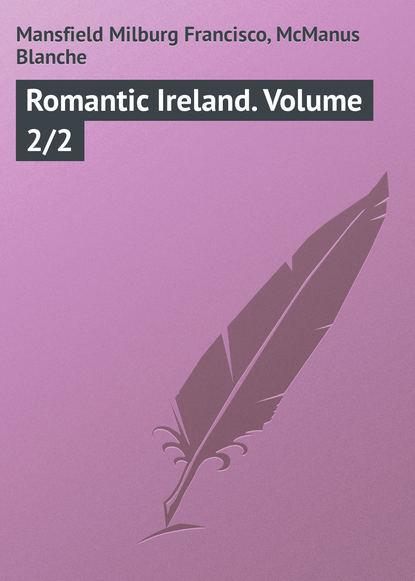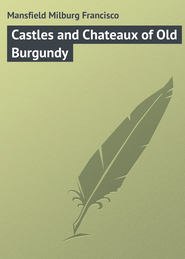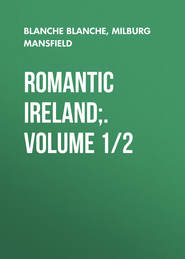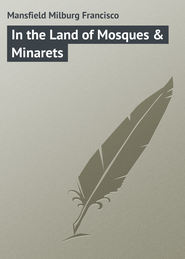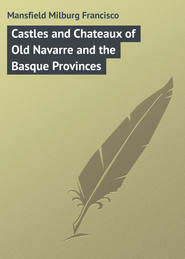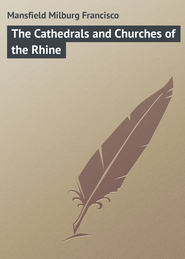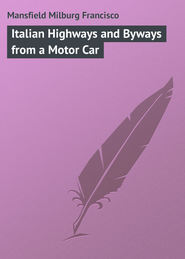По всем вопросам обращайтесь на: info@litportal.ru
(©) 2003-2024.
✖
Romantic Ireland. Volume 2/2
Настройки чтения
Размер шрифта
Высота строк
Поля
The former’s stanzas, as given below, are perhaps not of his usual heroic order, and may, once and again, appear unduly sentimental, but they are emphatically true and appreciative:
“Hail, charming scene! Glengarriff’s bay,
Yon mountains, streams, and dells,
The Atlantic waters’ foaming spray,
Creation’s wonder tells.
“Hail, Bantry’s noble harbour deep,
Where Britain’s fleet may ride,
And giant ships, in safety’s keep,
May in or outward glide.
“Thy glorious waters, green and gemmed,
With beauteous islands crowned,
While the enchanting scene is hemmed
With purple hills around.
“At morning’s dawn or evening’s shade
Thy glory’s still the same:
And ever will be so arrayed,
With English tourists’ fame.”
An enthusiastic American, who subscribed himself as from New Jersey, has left the following lines upon the register of the hotel at Glengarriff:
ADIEU TO GLENGARRIFF
“Glengarriff! on thy shaded shore
I’ve wandered when the sun was high,
Have seen the moonlit showers pour
Through thy umbrageous canopy:
…
Glengarriff! might I but delay,
…
I would not say good-bye to thee:
Alas! far distant is the day
When I thy charms again may see.
Yet, in the land remote of mine,
Remembrance will thy grace renew,
So, as thou canst not call me thine,
Glengarriff! loveliest, best, adieu!”
This valleyed and landlocked harbour of Glengarriff terminates Bantry Bay, which, says Mr. Kipling, “lies just to the eastward of the Fastnet, that well-worn mile-post of the Atlantic liner.”
In Kipling’s “Fleet in Being,” which first appeared in the Morning Post (London) in
1898, and of which even this author’s most ardent devotees appear too frequently to have no knowledge, are to be found some wonderful bits of descriptions of Irish coast scenery. Therein are recounted virile experiences and observations on board the flag-ship of the Channel fleet during the autumn manœuvres; and, from Lough Swilly in the north to Bantry Bay in the south, the author depicts, with a master mariner’s fidelity, the characteristics of the coast-line, – its harbours, bays, headlands, and ports, – in so incomparable a fashion that it is to him that we must accord the rapidly increasing appreciation of, and interest in, the charms of Ireland as a tourist resort.
Coupled with the charms of Glengarriff’s bay is its sister attraction – no less winsome – of the monarch mountain of these parts, Sliabhna-goil (i. e., “the Mountain of the Wild People”), more commonly called “Sugar Loaf.” Why it is so named is, of course, obvious to all who see it; but it is a rank departure from its original appellation.
This mountain’s taller brother Dhade (now Hungry Hill) rears itself in grim severity a little to the westward. Both are conspicuously coast-line elevations of the first rank.
Time will allow but a glance at the many beauties of this region; but the leaves of memory will press the fragments of romance, in an all-enduring fashion, to all who come immediately beneath their spell.
One legend, repeated here from a source well known, must suffice. It refers to the mountain pass of Keim-an-eigh, “the path of the deer,” through which, according to M’Carthy’s “Bridal of the Year,” and in reality, too:
“Streams go bounding in their gladness
With a Bacchanalian madness.”
M’Carthy has put the legend into elegant verse, known of all lovers of Irish song as “Alice and Una.”
Briefly the tale runs thus: A young huntsman, Maurice by name, had all day pursued a fawn, which at evening fled for refuge —
“To a little grassy lawn —
It is safe, for gentle Alice to her saving breast hath drawn
Her almost sister fawn.”
A romantic affection then sprang up between the two humans, the hunter and the maid; and this magnet drew the youth often hither, in spite of the fact that Una, a fairy queen, was passionately enamoured of the gallant deer-chaser. One evening, as he was wending his way to see his lady fair, the moon grew dark, a great storm arose, and the lovelorn Maurice lost himself in the wood. All this was of course due to the jealous fairy in true legendary fashion. At length he falls in with a noble jet-black steed, which he mounts. This grim shape proves to be a certain dreaded Phooka (the same symbol is renowned throughout Ireland, and has been traced even to the legends of the Northmen), a genii of Una’s, who immediately rushes off with the youth through glen and valley, stream and forest, up and down the mountain sides:
“Now he rises o’er Bearhaven, where he hangeth like a raven —
Ah! Maurice, though no craven, how terrible for thee!
To see the misty shading of the mighty mountains fading,
And thy winged fire-steed wading through the clouds as through a sea!
Now he feels the earth beneath him – he is loosened – he is free,
And asleep in Keim-an-eigh.”
In his trance-dream he hears the rumble of crashing thunder. The rock opens and displays within a scene of revelry and joy, to which a page bids him welcome, and ushers him through a brilliant assemblage to the very throne of the Queen-fairy Una. She smiles graciously upon him; urges him to leave the world and all its woes to become one of her happy subjects; and promises him that, if he will but take the oath of allegiance, she herself will deign to be his bride. Spellbound by such an appeal, his lips are all but ready to utter the irrevocable vow.
“While the word is there abiding, lo! the crowd is now dividing,
And, with sweet and gentle gliding, in before him came a fawn;
It was the same that fled him, and that seemed so much to dread him,
When it down in triumph led him to Glengarriff’s grassy lawn,
When from rock to rock descending, to sweet Alice he was drawn,
As through Keim-an-eigh he hunted from the dawn.”
“The magic chain is broken – no fairy vow is spoken —
From his trance he hath awoken, and once again is free;
And gone is Una’s palace, and vain the wild steed’s malice,
And again to gentle Alice down he wends through Keim-an-eigh.
The moon is calmly shining over mountain, stream, and tree,
And the yellow sea-plants glisten through the sea.
…
“The sun his gold is flinging, the happy birds are singing,
And bells are gaily ringing along Glengarriff’s sea;





